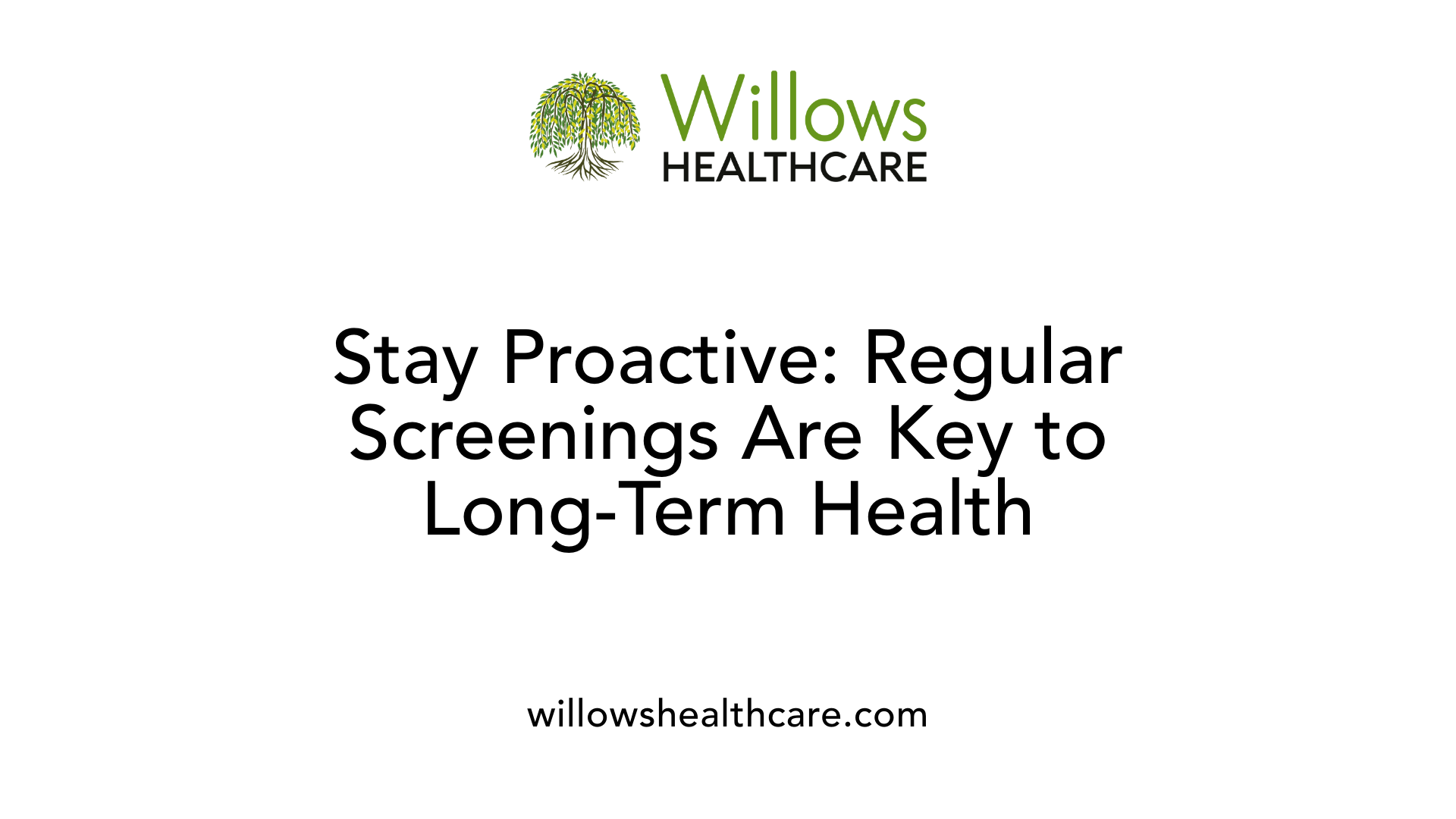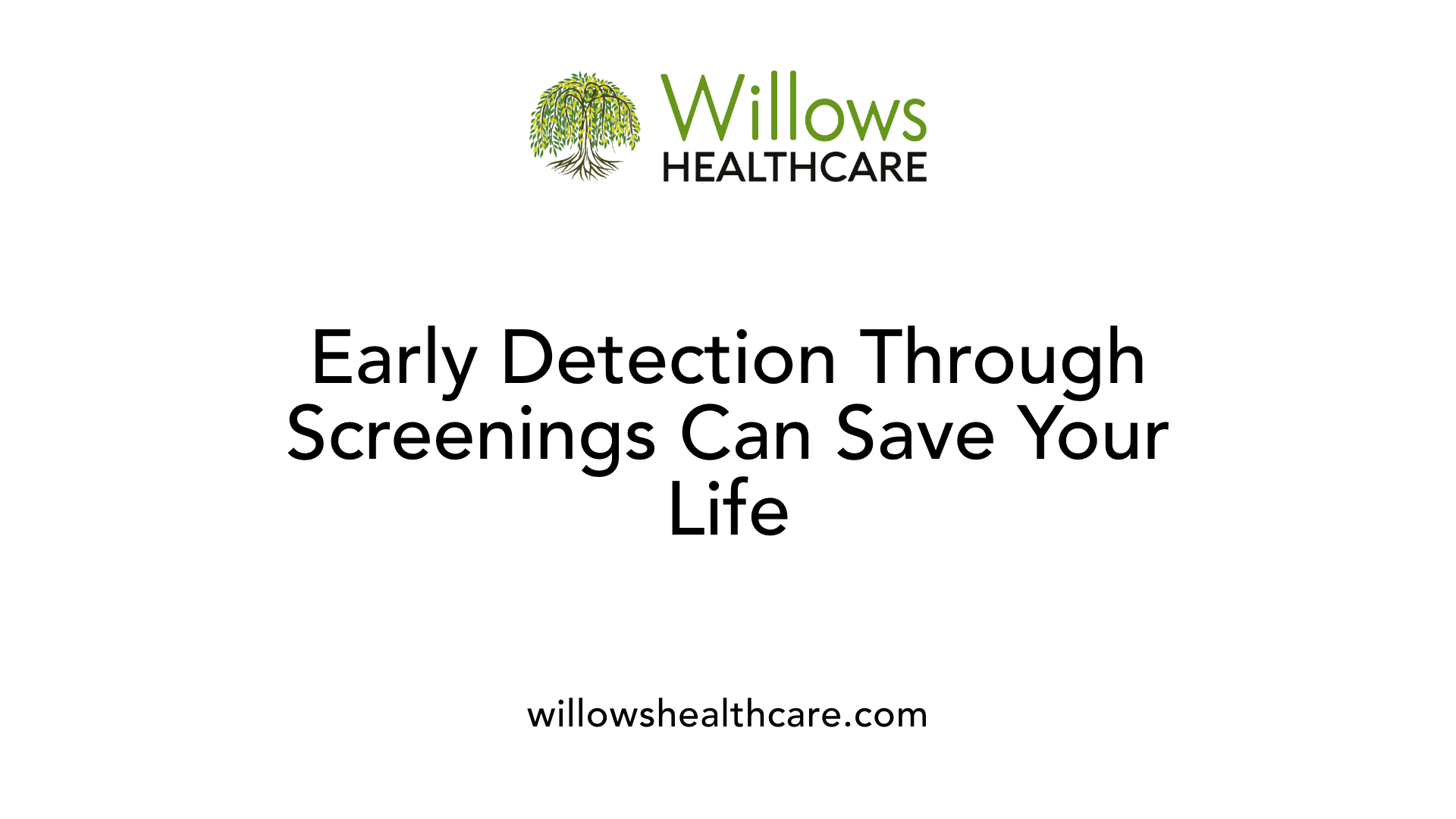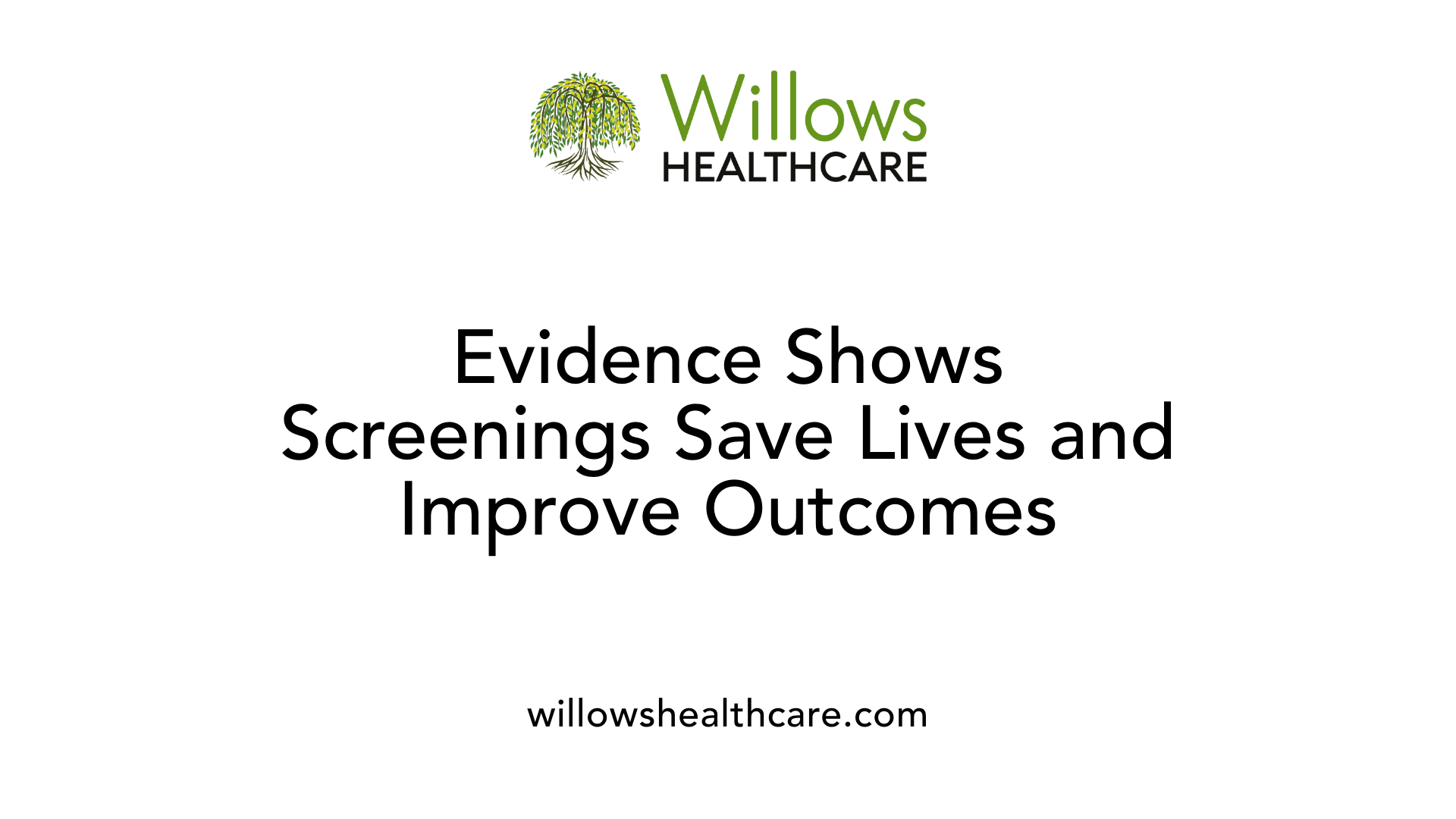The Benefits of Regular Health Screenings
July 16, 2025
Empowering Wellness Through Consistent Preventive Measures


Understanding the Critical Role of Regular Health Screenings
Routine health screenings are a cornerstone of preventive healthcare. They serve as vital tools that enable early detection of potential health issues, allowing for timely interventions that can avert serious illnesses and improve overall quality of life. By engaging in regular check-ups and screening programs, individuals take proactive steps toward maintaining their health, reducing long-term healthcare costs, and fostering a culture of wellness across communities.
Why Regular Screenings Are Essential for Overall Health Management

Why are regular health screenings important for maintaining overall health?
Routine health screenings are vital components of preventive healthcare. They enable the early detection of medical issues like cancer, diabetes, high blood pressure, and mental health conditions, often before symptoms appear. Early identification allows for prompt treatment, which can significantly improve health outcomes and even save lives.
Screenings also help in recognizing risk factors such as elevated cholesterol, blood sugar, or blood pressure. By catching these early, individuals and healthcare providers can implement lifestyle changes or treatments to prevent the progression of diseases.
Monitoring health trends over time is another crucial aspect. Regular checkups facilitate comparisons of test results, helping detect subtle changes. This ongoing assessment supports personalized care plans and timely interventions, ensuring health remains on track.
Furthermore, health screenings foster better communication between patients and providers. They form the basis for tailored health advice, including diet, exercise, and stress management strategies.
In addition to health benefits, preventive screenings can reduce overall healthcare costs by avoiding expensive treatments for advanced diseases. They also provide peace of mind, reducing stress about undetected health issues.
While some studies question the impact of routine checks on certain mortality outcomes, overall, regular screenings encourage healthier lifestyles, aid in early disease management, and contribute to an improved quality of life.
How Health Screenings Play a Crucial Role in Disease Prevention & Early Detection

How do health screenings contribute to early detection of diseases?
Health screenings are essential tools for catching diseases early, often before any symptoms emerge. They involve tests and examinations on individuals who feel healthy, to identify health risks or hidden conditions.
By recognizing issues like high cholesterol, high blood pressure, or early signs of cancer, screenings enable healthcare providers to start treatment sooner. This early diagnosis often means less aggressive treatments and better health outcomes.
Screenings such as mammograms for breast cancer, colonoscopies for colorectal cancer, and blood tests for diabetes are designed to detect these conditions at stages when they are more manageable. They are made to be sensitive enough to identify problems accurately, specific enough to avoid false positives, safe, and affordable.
Additionally, screening results offer valuable insights into public health trends, helping guide health policies. They also motivate lifestyle changes — like improved diet, exercise, or smoking cessation — which further lower disease risks.
Overall, health screenings are a proactive approach to maintaining health, reducing treatment costs, and saving lives by catching issues early when they are most treatable.
Types of Screenings and Recommended Schedules for Different Populations
 Regular health screenings include a variety of tests vital for early disease detection and prevention. These encompass mammograms and Pap smears for women’s reproductive health, colonoscopies or stool tests for colorectal cancer, blood tests for cholesterol, blood sugar, and other markers, and bone density scans for osteoporosis risk.
Regular health screenings include a variety of tests vital for early disease detection and prevention. These encompass mammograms and Pap smears for women’s reproductive health, colonoscopies or stool tests for colorectal cancer, blood tests for cholesterol, blood sugar, and other markers, and bone density scans for osteoporosis risk.
Screening recommendations vary by age and gender. For example, women are encouraged to undergo mammograms every 1-2 years starting at age 40, and cervical cancer screening every five years through Pap smears or combined tests. Men should consider prostate exams based on risk factors, while older adults may need screenings for lung cancer, abdominal aortic aneurysm, and age-related conditions.
The frequency of tests depends on individual risk factors, medical history, and current guidelines. Blood pressure and cholesterol checks are typically annual or biennial, while colon cancer screenings may be advised every 10 years for certain age groups. High-risk individuals, such as those with a family history of cancer or heart disease, may require more frequent assessments.
Personalized screening schedules are essential. Knowing one’s health history and discussing risks with healthcare providers help tailor preventive strategies effectively. This approach ensures that each person receives the most appropriate tests at optimal intervals, maximizing early detection and improving long-term health outcomes.
Scientific Evidence Supporting the Effectiveness of Health Screenings

What scientific evidence supports the effectiveness of health screenings?
Research shows that health screenings play a vital role in early disease detection, which is closely linked to improved treatment outcomes and higher survival rates. For example, studies have demonstrated that mammograms markedly increase the chances of catching breast cancer early when it is most treatable.
Large-scale trials and observational studies have confirmed that using high-quality screening tools like colonoscopies for colorectal cancer or low-dose CT scans for lung cancer in high-risk groups can significantly lower death rates. Health organizations such as the U.S. Preventive Services Task Force (USPSTF) and the World Health Organization (WHO) base their guidelines on this body of evidence to recommend specific screening intervals and populations.
Cost-effectiveness analyses further support the value of screening programs. These studies often measure quality-adjusted life years (QALYs) gained versus the costs of screening and treatment. Results generally show that targeted, well-implemented screening can save money in the long run by preventing advanced disease and reducing the need for expensive treatments.
However, not all screenings are beneficial. Certain tests may lead to false positives, overdiagnosis, or unnecessary procedures, which can cause harm or anxiety. Evidence-based guidelines help distinguish effective screening from those with limited benefit.
In summary, scientific research confirms that appropriately chosen and conducted health screenings can greatly reduce disease burden, extend lifespan, and optimize healthcare resource use, making them a cornerstone of preventive medicine.
Building a Culture of Preventive Care for Lifelong Wellness
Adopting a proactive approach to health through regular screenings, vaccinations, and routine check-ups is vital for preventing disease, managing existing conditions, and enhancing life quality. Early detection saves lives, reduces healthcare costs, and promotes community health resilience. Embracing preventive health measures, guided by scientific evidence and personalized risk assessments, builds a foundation for lifelong wellness. Healthcare policies and community programs that encourage screening participation and education can significantly improve health outcomes across populations. Ultimately, making preventive care accessible and routine empowers individuals to lead healthier, longer lives while alleviating the burden on healthcare systems.
References
- Why Health Screenings Are Important | Routine CT Scans
- Why Are Health Screenings Important? | AdventHealth Primary Care+
- Routine Screenings | Johns Hopkins Medicine
- Know your numbers: The importance of regular health screenings
- Are You Up to Date on Your Preventive Care? | Chronic Disease
- Why Preventive Health Checkups Matter | Prima CARE
- Understanding the Importance of Regular Health Screenings
- Health Screening - StatPearls - NCBI Bookshelf
- 5 Reasons Why Preventive Health Screenings Are Essential
- The Importance of Regular Health Screenings: A Key to a Healthy Life













